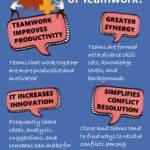
Do What I Say but not What I Do
Do What I Say is an energizing, simple and fun activity to stay focused and sharpen listening and observation skills.
Start by inviting a couple of volunteers to join you in a straight line facing your group. Then, announce “I LIKE TO JUMP UP AND DOWN,” but, you are, in fact doing something quite different, perhaps waving your arms in big circles beside your body.
In other words, you are actually DO-ing something completely different to what you are SAY-ing you like to do.
After invite the person standing next to you to actually do what you said you like doing, but announce that they like something else.
For example, this second person will jump up and down (to do what I said,) but will say that they like something else, such as “I LIKE TO RIDE HORSES.” The next person in line makes like riding a horse, and so on.
In essence, each person DOES what they heard the person before them say, while saying that they like to do something completely different. It helps to remind each person to begin by saying “I LIKE TO…..” while physically doing something else.
Assemble your group into teams of approx 10 to 15 people, standing in a circle. Challenge your group to repeat this process, working around the circle as quickly and as accurately as possible without making a mistake.
Accuracy is the key, but for your high performance groups, I suggest that pace and choosing unique actions are also key success factors.
So, if someone should pause to think too long, or repeat an action someone has already performed, the game stops. They must start over every time someone makes a mistake.
Moment of Reflection
- Was this game difficult to perform? Why? What made it hard?
- Which is more powerful – the vision or the audio?
- What does this game teach us about the relative dominance of our senses?
- Ordinarily, what does it mean when someone says one thing but does something else?
The topics of this publication: integration, interactions, disinhibition, observation skills, competencies, energize, adaptability skills, adaptation, active listening, foster relationships, motivation, improvise, distension


